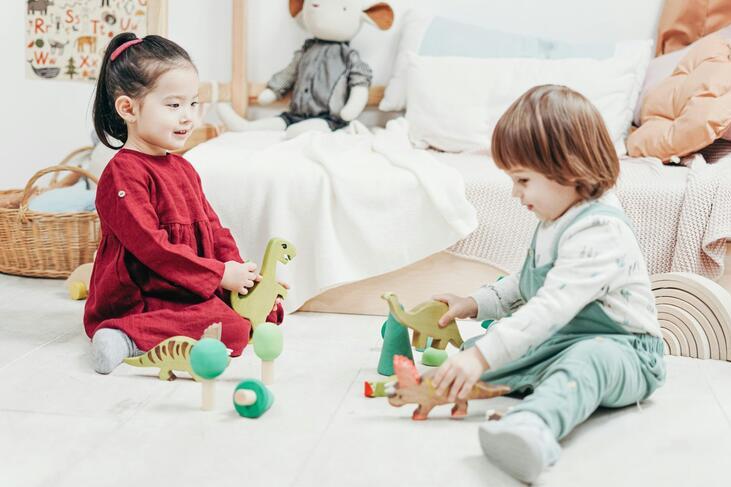Close friendship can compensate for poor sibling bond—and vice versa

Not all children get along well with their friends or siblings. A positive relationship with a friend, however, can buffer the effects of a poorly functioning relationship the child may have with a sibling, said University of Illinois researcher Nancy McElwain in a study published in December’s Journal of Family Psychology.
The opposite is also the case: a positive relationship with a sibling can buffer the negative effects of a poor relationship with a friend. When this buffering effect occurs, children exhibit fewer behavior problems, said the U of I assistant professor of human development.
That’s why the researcher recommends taking steps to expand a child’s horizons if he or she seems to be having trouble in relationships with other children. “A strong relationship in another setting can help the child learn important social and emotional skills,” she said.
McElwain observed the behavior of 52 four-year-olds in separate sessions with a friend and with an older sibling. Each pair was observed during a free-play session and a sharing task. In a separate measure, mothers and fathers rated their child on a checklist of problem behaviors.
The observations were coded for the children’s level of play, their ability to pick up and respond to social cues, and the level of conflict that occurred. The observations were then compared to the parent-reported behavior problems.
If both sibling and friendship quality were low during the more challenging sharing task, children tended to have more aggressive behavior problems, McElwain said.
“But, if one relationship was high in quality during the sharing task, the incidence of aggressive behavior was lower. This suggests that even one positive relationship with another child can have a positive influence,” she continued.
The sharing task session, in which children needed to share one attractive toy, presented a challenge for these young children’s social and emotional skills, said McElwain.
The study also showed that the social and emotional skills children learn in friendships differ from those they learn in their relationships with older siblings. “As you would expect, older siblings tended to dominate their younger siblings, whereas friends tended to have more equitable interactions. Friends also engaged in more complex social interaction, with high levels of ‘pretend’ play,” she said.
“I’d suggest that parents promote the development of a close relationship with at least one friend or sibling. Encouraging frequent contact with another child, providing children time to engage in unstructured play and allowing children to attempt to resolve conflicts on their own are important to the development of these new relationships,” she said.
At times, friend or sibling conflicts may escalate and parents may need to provide guidance. “Preschool children often have difficulty managing their emotions, and parents can help them learn some basic coping techniques for dealing with anger and frustration,” she said. “Helping children to label the emotion and the cause of the emotion and encouraging children to think about what they could do to solve the problem may provide children with a greater sense of understanding and control.”
Parents can also help improve children’s social skills by encouraging them to practice such skills as perspective-taking, trying to see things from the other child’s point of view.
The study was co-authored by Brenda L. Volling of the University of Michigan and funded by grants from the University of Michigan.